LINCOLN & CHURCHILL
Also by Lewis E. Lehrman
Lincoln at Peoria: The Turning Point
Lincoln by littles
Money, Gold, and History
Churchill, Roosevelt & Company:
Studies in Character and Statecraft
Published by Stackpole Books
An imprint of Globe Pequot
Trade Division of The Rowman & Littlefield Publishing Group, Inc.
4501 Forbes Boulevard, Suite 200, Lanham, Maryland 20706
www.rowman.com
Distributed by
NATIONAL BOOK NETWORK
800-462-6420
Copyright 2018 Lewis E. Lehrman
All rights reserved. No part of this book may be reproduced in any form or by any electronic or mechanical means, including information storage and retrieval systems, without written permission from the publisher, except by a reviewer who may quote passages in a review.
British Library Cataloguing in Publication Information Available
Library of Congress Cataloging-in-Publication Data
Names: Lehrman, Lewis E., author.
Title: Lincoln & Churchill : statesmen at war / Lewis E. Lehrman.
Description: Guilford, Connecticut : Stackpole Books, 2018. | Includes bibliographical references and index.
Identifiers: LCCN 2017037477 (print) | LCCN 2017037899 (ebook) | ISBN 9780811767453 (e-book) | ISBN 9780811719674 (hardback : alk. paper) | ISBN 9780811767453 (ebook)
Subjects: LCSH: Lincoln, Abraham, 1809-1865Military leadership. | Churchill, Winston, 1874-1965Military leadership. | United StatesHistoryCivil War, 1861-1865Biography. | World War, 1939-1945Biography. | Lincoln, Abraham, 1809-1865Influence. | Churchill, Winston, 1874-1965Influence.
Classification: LCC E457.2 (ebook) | LCC E457.2 .L443 2018 (print) | DDC 973.7092 [B] dc23
LC record available at https://lccn.loc.gov/2017037477
First Edition
Printed in the United States of America
 The paper used in this publication meets the minimum requirements of American National Standard for Information SciencesPermanence of Paper for Printed Library Materials, ANSI/NISO Z39.48-1992.
The paper used in this publication meets the minimum requirements of American National Standard for Information SciencesPermanence of Paper for Printed Library Materials, ANSI/NISO Z39.48-1992.
And some there be, which have no memorial; who are perished, as though they had never been...
Ecclesiasticus (44:9)
For Louise, always.
For my children and their spouses: Leland and Vera, John and Jenifer, Thomas and Mara, Eliza and Filip, Peter and Eve.
For my grandchildren: Cree, Kestrel, Berenika, Peter Lewis, Rose, Isabel, Jasmine, James, Forest, Eleanor, Lawrence, Reed, Caroline, Sadie Louise.
In War: Resolution,
In Defeat: Defiance,
In Victory: Magnanimity,
In Peace: Good Will.
WINSTON S. CHURCHILL
inserted these phrases at the beginning of each volume of his World War II memoirs (probably drafted in 1919 as a possible inscription on a French war memorial).
With malice toward none; with charity for all; with firmness in the right, as God gives us to see the right, let us strive on to finish the work we are in; to bind up the nations wounds; to care for him who shall have borne the battle, and for his widow, and his orphanto do all which may achieve and cherish a just, and a lasting peace, among ourselves, and with all nations.
ABRAHAM LINCOLN
Second Inaugural Address
March 4, 1865
PREFACE: WARS OF NATIONAL SURVIVAL
S till in his teens, Winston Churchill took the entrance examination for the Royal Military Academy at Sandhurst. He chose to write his essay on the American Civil War. The topic fascinated him. As an adolescent, the future prime minister had seen British cartoons on slavery, published in the journal Punch . He exclaimed: I was all for the slave. At first,
During World War II, Churchill would meet many of the same challenges that Lincoln had faced eight decades earlier. Raised in very different social, economic, and professional environments, the harsh reality of wars of national survival would challenge them immediately upon becoming president and prime minister. Lincoln came to the presidency inexperienced in warnot well known, but well respected by those who knew him. Churchill became prime minister well experienced, very well known, but doubted by members of his Conservative Party. Like President Lincoln during his continental civil war, Churchill embraced the political and military leadership of his country in a global war that imperiled his countrys survival.
Before taking supreme command of their nations armed forces, both unconventional men had lived their lives at the edge of respectabilitynot so far outside as to affront those who knew them, but not so far inside as to limit their flexibility when events would require unconventional decisions. Lincolns character and conduct gave rise to few permanent enemies. From early maturity, he would stick primarily to fixed goals and principles. Strategic principles gave him freedom to take prudent tactical action to attain his goals. Churchills goals and ambition had caused him to change political parties twice. But on issues of principle, he stood fast, even while adapting to changed circumstances during a sixty-year political career. On the issue of Hitlers mortal threat to European and Christian civilization, the prime minister would establish his uncompromising opposition before he took office in 1940.
Neither the United States in 1860 nor Britain in 1939 had been well prepared for the cataclysms that would overtake them. Nothing could have made Lincoln or Churchill entirely ready for the challenges each would have to overcome. About three weeks after assuming office, both supreme commanders would prevail in crucial cabinet divisions on national strategy. In so doing, Lincoln and Churchill would thereafter set bold and heroic standards that defined their wartime leadership.
Shortly after the inauguration, on March 28, 1861, after a diplomatic dinner at
President Lincoln rejected this advice despite the worries of his cabinet. Acting to the contrary, Lincoln took command: I am directed by the President, wrote Lincoln aide John G. Nicolay, to General Scott, without precedent.
Nearly four score years later, during nine meetings of the War Cabinet held May 2628, 1940after the onset of the Nazi blitzkriegChurchill would encounter a major cabinet division over whether to approach Italy as an intermediary to bring about peace negotiations with Hitlers Germany. The British Foreign Secretary, Lord Halifax, favored such an approach. Frustrated by For the prime minister, there would be no negotiations with Hitleronly war until Nazi Germany surrendered.
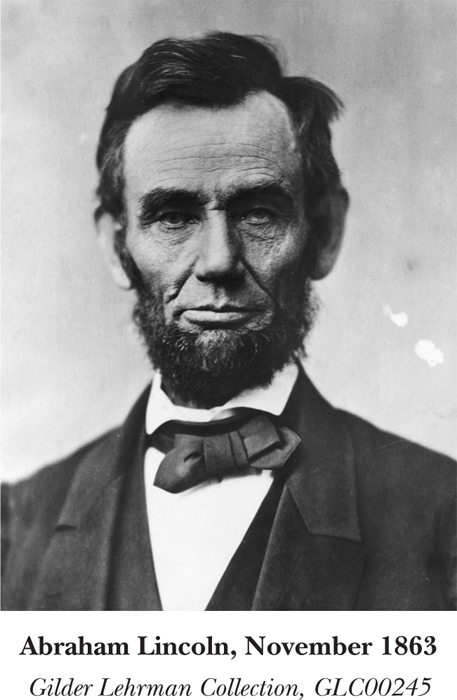
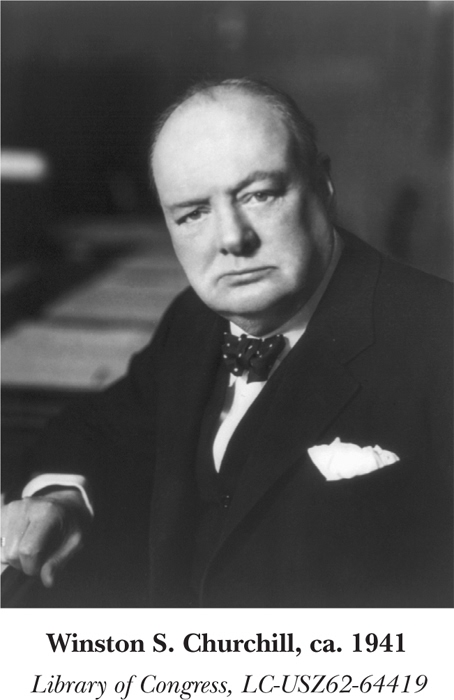
Facing senior cabinet opposition, Churchill and Lincoln stood fast against the appeasement policies embraced by their predecessors. Lincoln would reserve all the prerogatives of the constitutional commander in chief. For example, in August 1861, General John C. Frmont issued orders freeing slaves in his Missouri command. Lincoln first suggested to Frmont that the orders be withdrawn. When
Both war leaders did have blind spots. Lincoln underestimated the Southern determination to secede, and then to make war to secure its independence as a slave republic. Both endured
Bleak outcomes would often set off melancholy moments for Churchill and Lincoln. They recovered quickly, always to instill in subordinates and countrymen the will to persevere. The Presidents faith in the Union cause was never dimmed by disappointments, wrote Churchill in During World War II, such a description could have fit Prime Minister Churchill at 10 Downing Street.









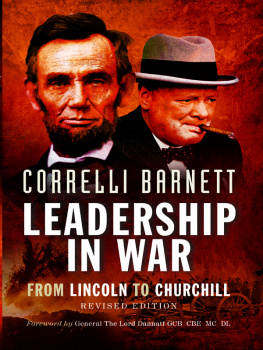
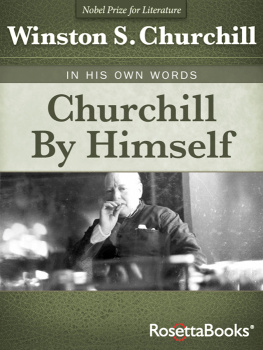
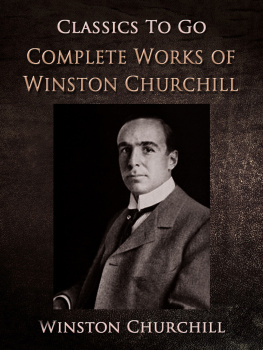
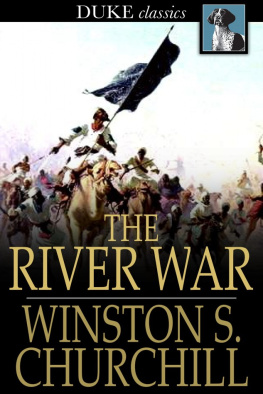
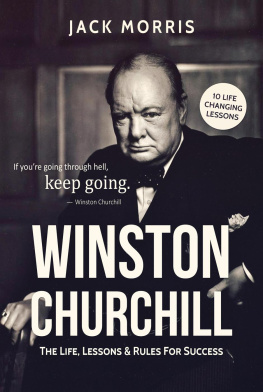
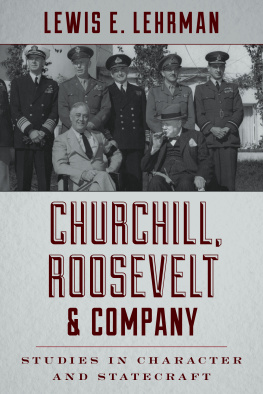
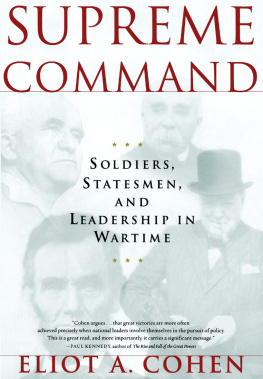

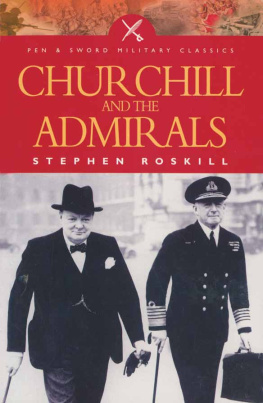
 The paper used in this publication meets the minimum requirements of American National Standard for Information SciencesPermanence of Paper for Printed Library Materials, ANSI/NISO Z39.48-1992.
The paper used in this publication meets the minimum requirements of American National Standard for Information SciencesPermanence of Paper for Printed Library Materials, ANSI/NISO Z39.48-1992.
